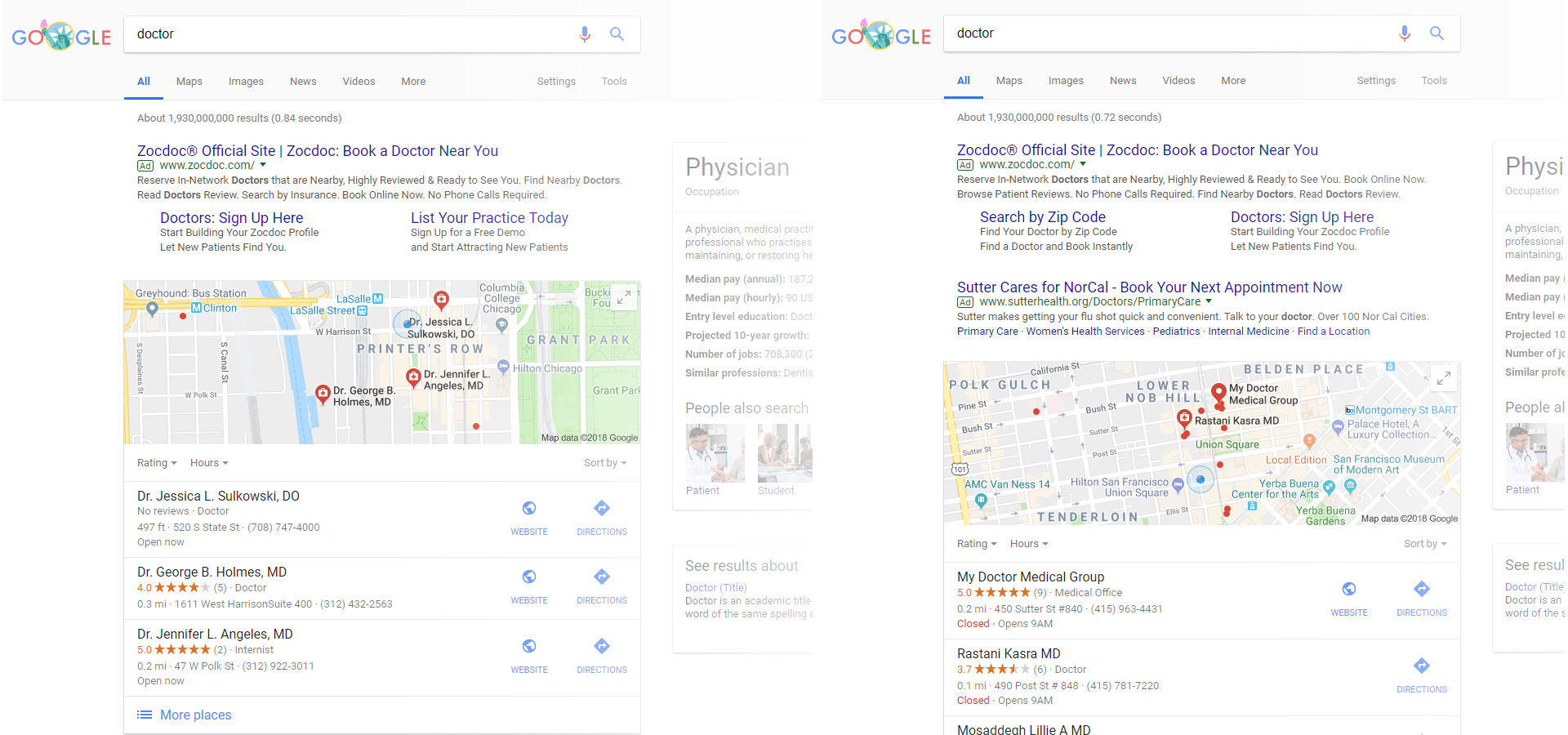If you had to guess what was responsible for driving over half of all internet traffic, what would you say? Social media? Paid ads?
According to 2017 and 2014 Bright Edge reports, “51% of traffic…comes from organic search.” While it’s not always the trendiest or fastest form of digital marketing, search engine optimization, commonly referred to as SEO is critical for tapping into the largest traffic source online—search.

The good news is, the basics of SEO are similar across the board. We’ll dive into the best practices for SEO toward the end of this article, but let’s first examine how varieties of searches might impact the way results are ranked, which can impact the effectiveness of certain SEO practices for reaching your target audience.
National vs. Local Search
A search engine’s ultimate goal for each and every search is to return results that are exactly what a user was looking for.
To do this, the search engine customizes rankings using a variety of factors (i.e., their “algorithm”) to determine how well a search result matches up with a query based on the users intent and location.
For example, imagine you are looking for a doctor that specializes in feet. Searching something like “doctor that specializes in feet” returns vastly different results than “doctor that specializes in feet Knoxville.”
Key considerations search engines take into account:
- Is the user looking for something nearby?
- Is the user searching for general information?
- Is the user searching for an image?
- Is the user looking for products?
The answers to these questions and more impact the way results are ranked and will change the results supplied by a search engine, like Google. While Google looks at more than 200 ranking factors, the factor with the most impact on determining how to direct your SEO efforts is whether your target audience is looking for local information or national information.
Local Search
The most specific of the two is local search.
Local searches are queries where users are searching for information specific to a certain area like a town or neighborhood. In order to serve up more useful information, Google and other search giants look for keywords and phrases that indicate local search intent and return local results over national.
For example, searches for keywords like “doctor” or “dentist,” which seem like they’d be hard to rank for nationally, return local search results. This means these terms return local search results that change based on the user’s location and the results for someone in Chicago will differ from the results for someone in San Francisco.

Comparison of local search results for “doctor” in Chicago and San Francisco
In addition to specific keywords that typically imply “local intent,” like “doctor” above or “dentist,” Google uses some local modifiers to trigger local searches. For example:
- “Near me” as in “podiatrists near me.”
- Addition of town names as in “ophthalmologists Nashville TN.”
- Addition of location names like “urgent care clinic near Walt Disney World.”
Ready to learn about best practices on how to optimize for local and national search? Read the full guest post at ReferralMD




